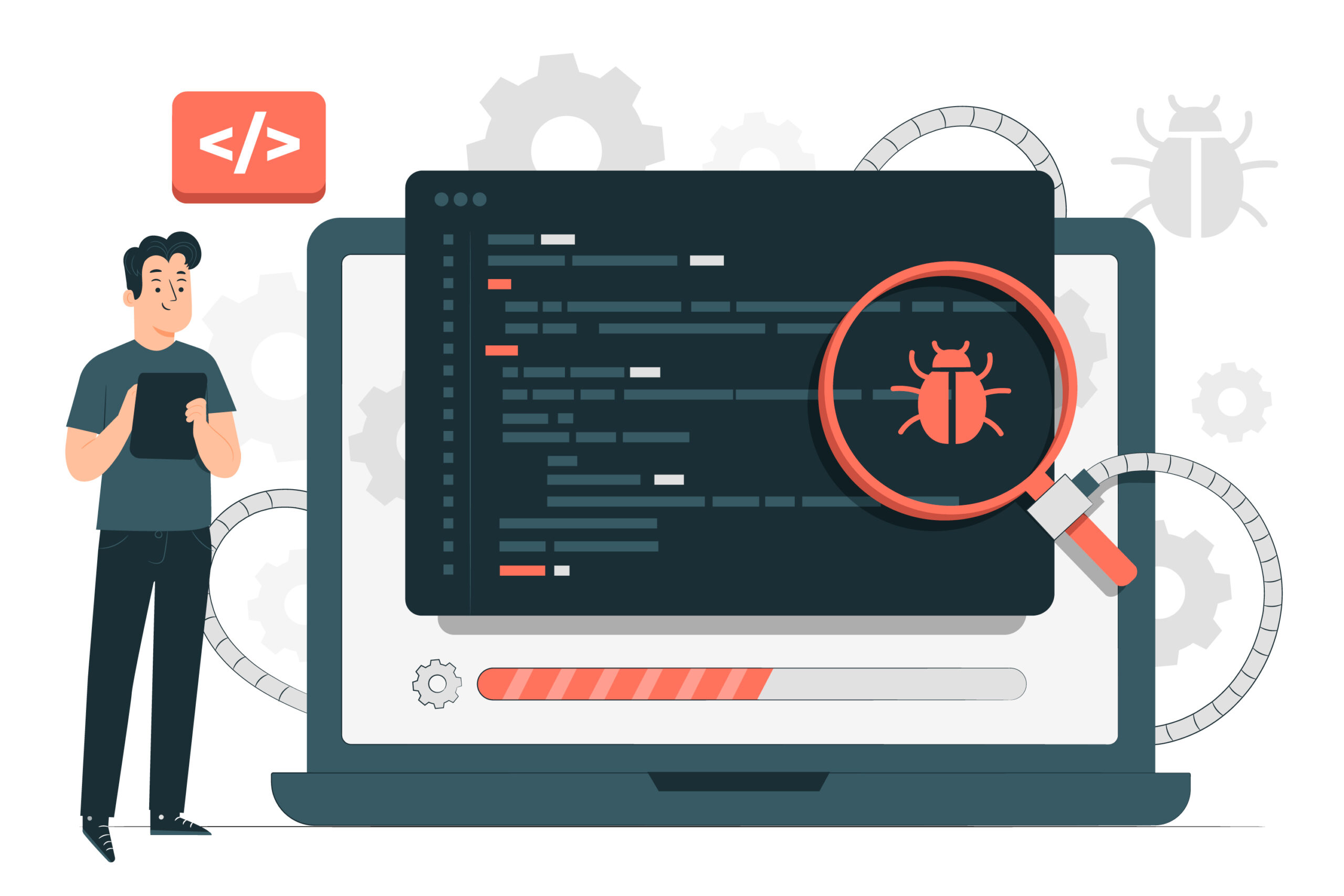Debugging is an essential part of the software development process, often considered more an art than a science. This article explores various strategies and tools for debugging code across different programming languages, emphasizing modern techniques and the use of contemporary tools.
Understanding the Basics
Before diving into specific tools and techniques, it’s crucial to grasp the fundamental principles of debugging:
- Reproduce the Bug: Always start by reproducing the error. This step confirms the existence of the problem and gives you a starting point for tracking down its cause.
- Understand the Codebase: Familiarize yourself with the codebase. This understanding can significantly expedite the debugging process.
- Use Version Control: Tools like Git allow you to compare current code with earlier versions where the bug might not have existed.
Language-Specific Tools
Each programming language has its own set of debugging tools:
- JavaScript: Tools like Chrome DevTools and Firefox Developer Tools are essential for debugging web applications. Node.js developers often rely on Node Inspector.
- Python: The Python Debugger (PDB) is a powerful tool that allows interactive debugging. More modern solutions like PyCharm provide graphical interfaces for debugging.
- Java: Integrated Development Environments (IDEs) like IntelliJ IDEA and Eclipse offer comprehensive debugging tools.
Logging and Monitoring
Effective debugging isn’t just about what happens in the IDE. Logging and monitoring are crucial:
- Logging: Implementing a robust logging system can help track down issues. Tools like Log4j for Java and Winston for Node.js are widely used.
- Monitoring: Real-time monitoring tools like New Relic or Datadog can provide insights into the application’s performance and help identify anomalies that could signal bugs.
Interactive Debugging
Interactive debugging is a method where the developer can pause execution (breakpoints) to inspect the state of the application:
- Breakpoints: Set breakpoints at critical sections of your code to examine variable values and application flow.
- Watch Expressions: These allow you to monitor the values of specific variables or expressions over time.
Test-Driven Development (TDD)
TDD is a modern programming practice where tests are written before the code. It can significantly reduce bugs:
- Write Tests First: This approach ensures that each code component is tested as soon as it’s written.
- Refactoring with Confidence: With a comprehensive test suite, developers can refactor code knowing that any new bugs will be immediately identified.
Pair Programming
Pair programming, a technique where two developers work together at one workstation, can be a highly effective debugging tool:
- Collaboration: Two sets of eyes are better than one for spotting errors.
- Knowledge Sharing: Pair programming facilitates the exchange of debugging techniques and strategies between team members.
Utilizing Advanced Tools and Techniques
Several modern tools and techniques can enhance debugging:
- Static Code Analysis: Tools like ESLint for JavaScript or Pylint for Python can detect potential errors before runtime.
- Profiling Tools: These tools help identify performance bottlenecks that could be related to deeper bugs.
Post-Mortem Analysis
After fixing a bug, conduct a post-mortem analysis:
- Root Cause Analysis: Determine what caused the bug to prevent similar issues in the future.
- Improve Documentation: Ensure that learnings from the debugging process are documented.
Keeping Up with Trends
The field of software development is always evolving, and so are debugging techniques:
- Webinars and Tutorials: Regularly engage with educational content to learn about new debugging strategies.
- Community Engagement: Participating in forums like Stack Overflow or attending meetups can provide insights into how others tackle debugging challenges.
Psychological Aspect of Debugging
Debugging can be frustrating. It’s important to manage your mindset:
- Take Breaks: Sometimes stepping away from a problem can bring new insights.
- Stay Positive: Maintain a positive attitude towards bugs as opportunities to learn.
Conclusion
Effective debugging is a multifaceted skill that combines technical knowledge with strategic thinking and psychological resilience. By mastering a variety of tools and techniques and staying abreast of new developments in the field, developers can significantly enhance their debugging efficiency, leading to more robust, reliable software. Remember, debugging is not just about fixing problems, it’s about understanding why they occurred in the first place and how to prevent them in the future.







